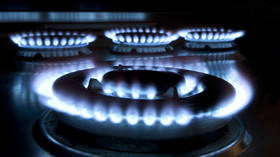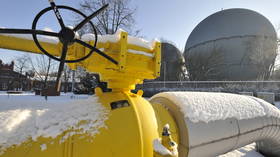EU Commission president makes Russian gas claim

The EU has measures in place that would ensure a stable energy supply in the event of an interruption in gas imports from Russia, the head of the European Commission declared on Tuesday.
Speaking to the press, President Ursula von der Leyen dismissed the claim that the EU would be unable to cope should Russia turn off the pipes. Moscow currently supplies the bloc with approximately 40% of its natural gas.
“Our models now show that for partial disruption or further decrease of gas deliveries by Gazprom, we are now rather on the safe side,” she said, according to Reuters news agency.
Patrick Pouyanna, CEO of the French oil and gas company TotalEnergies, claimed earlier this month that the EU currently has “no alternative” to Russian gas and stated that maintaining a dialogue with Russian suppliers would be essential for the bloc’s survival this winter.
Despite its current dependence on Russia, von der Leyen revealed yesterday that the EU has engaged in discussion with multiple other countries, including the US, Qatar, Egypt, Azerbaijan, Nigeria, and South Korea, about the possibility of an increase in the supply of natural gas, including liquified (LNG) form.
“We also spoke with the main LNG suppliers... and asked whether we could swap contracts in favor of the EU,” she explained.
In particular, she highlighted that the Japanese government had expressed a willingness to cooperate and last week said it would divert some LNG shipments to Europe.
According to von der Leyen, despite improvements in the continent’s energy infrastructure over recent years allowing for more effective inter-country energy distribution, a stoppage in Russia-EU gas flow would still warrant alarm.
Japan’s promised contribution indicates that European efforts in reaching out to suppliers further afield are now “distinctly paying off,” she added.
Von der Leyen said the need for Europe to reduce its dependence on Moscow had been highlighted by the alleged buildup of Russian troops on the Ukrainian border, with fears that an invasion could lead to the pipes being turned off. The transition away from Russian gas would also coincide with a wider EU objective to shift to 32% renewable energy by 2030, she noted.












